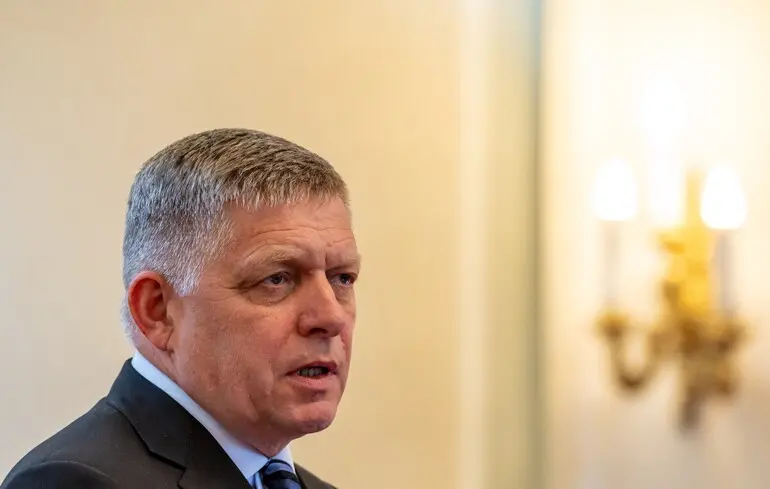Slovak Prime Minister Robert Fico skips Copenhagen summit due to health issues and political tensions

Amid escalating political and security crises across Europe, Slovak Prime Minister Robert Fico unexpectedly announced his absence from an informal meeting of EU leaders scheduled for October 1st in Copenhagen.
Officially, his refusal was attributed to worsened health conditions, which he linked to the aftermath of a thwarted assassination attempt last year.
This decision came amidst heightened security measures in the Danish capital, including suspicions of drone activity around airports.
Bloomberg reports that the actual reasons for Fico’s absence are linked to internal political conflicts and disputes within Slovakia, which have received widespread media attention.
Recently, mass protests have erupted in Slovakia against the government’s economic policies and perceived pro-Russian stance.
Moreover, in August 2023, Fico indicated health complications following his shooting incident in May last year, where he was shot five times while greeting supporters after a government meeting.
The attacker cited disagreements with the government’s policies as the motive.
The incident led to charges of terrorism against the assailant.
Fico also missed several public appearances in April 2023 due to health issues, including a live debate with former Czech President Miloš Zeman, emphasizing ongoing health and security concerns.
Another political development involved accusations from the Slovak government claiming a conspiracy by President Peter Pellegrini to destabilize the Fico cabinet and establish a government aligned with his interests, as reported by local media.
Pellegrini, who recently returned from the US, is allegedly seeking to oust Fico and strengthen his influence, according to sources within the political circles.
Fico, however, denies involvement in such plots and claims to have intelligence confirming these intentions.
Meanwhile, in the European Parliament, there are allegations linking Fico’s government to surveillance activities targeting monitoring missions, raising concerns over internal political stability.
These events highlight the complex and tense political landscape in Slovakia, with regional implications concerning Ukraine’s potential accession to NATO and the broader security architecture of Eastern Europe.

